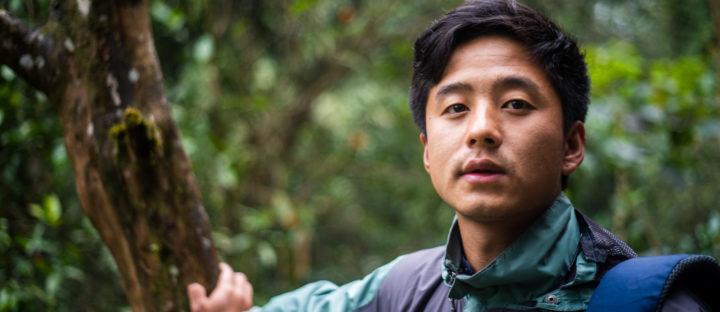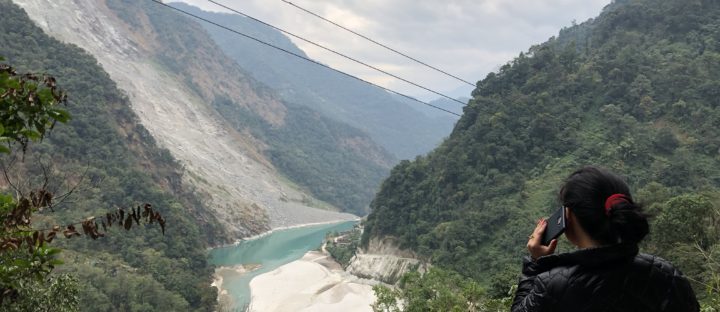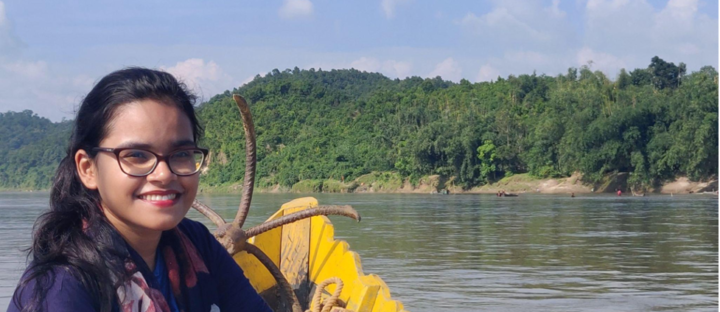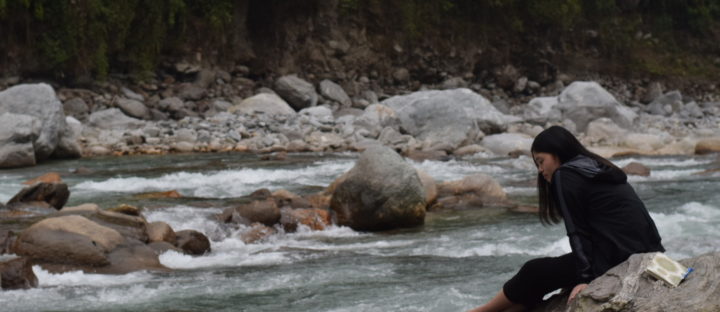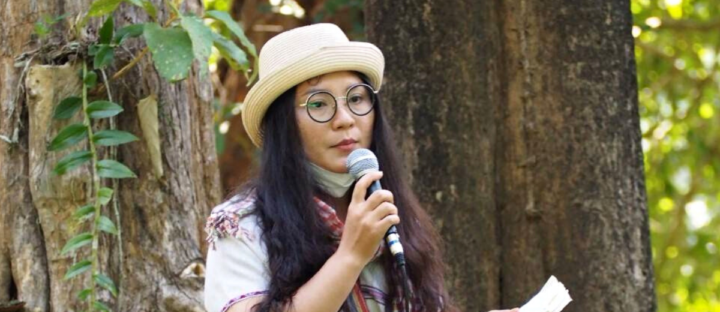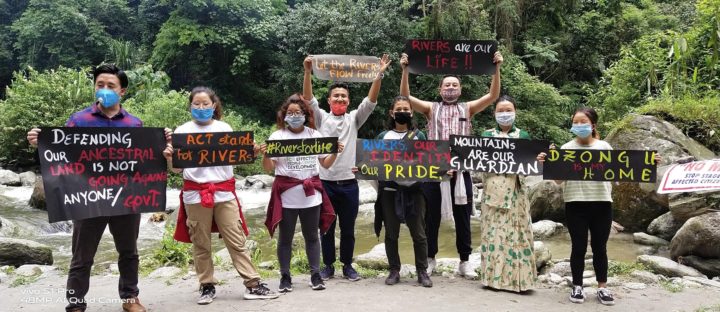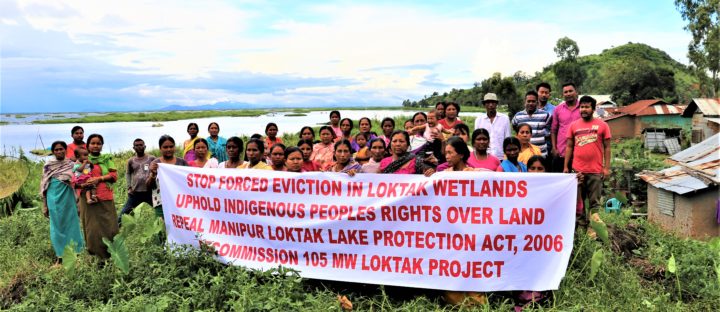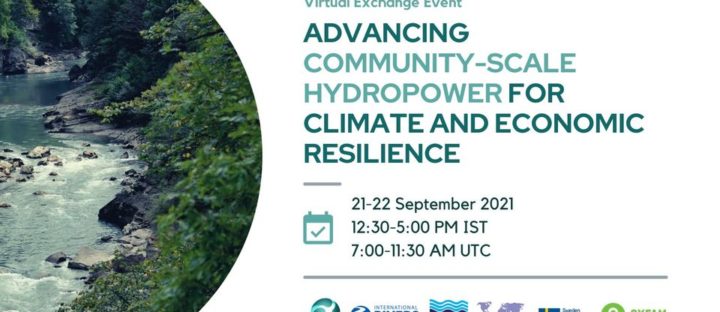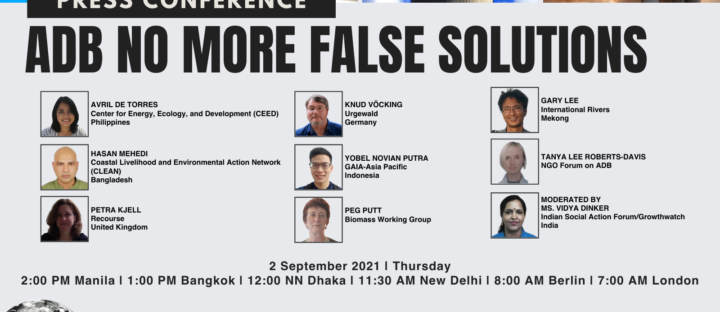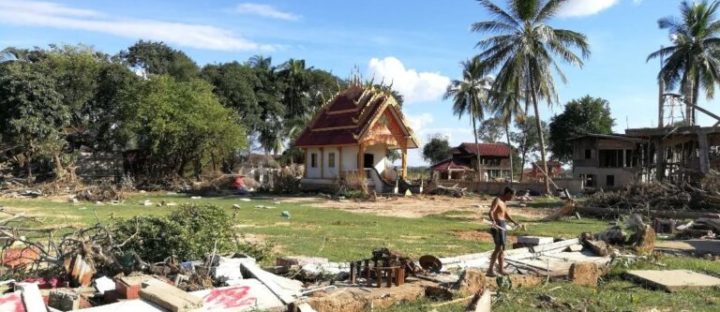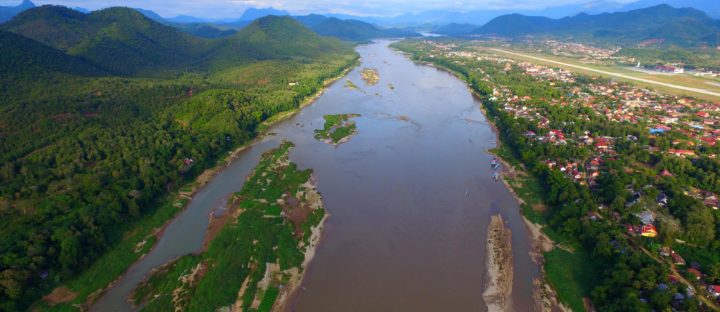By Ayesha DSouza, South Asia Program Coordinator. Mega Hydropower projects continue to be pushed in the fragile Indian Himalayas, often at the cost of the local communities and disguised as the only solution to local issues of development. One such place is Dzongu, the land of the Lepcha community in North Sikkim. Already home to…
Read MoreLandslides: Large Hydropower worsening the disaster for the Lepcha’s of Dzongu
By Ayesha DSouza, South Asia Program Coordinator One of the most visible things one sees when travelling from Siliguri in West Bengal up the winding roads to Northern Sikkim are huge streaks down the sides of the mountains. You can clearly see them sliding all the way to the River Teesta. These streaks or scratches…
Read MoreWomen and Rivers’ Defender Spotlight: Zerin Ahmed
by Petro Kotze and Nalori Chakma Connecting to riverine communities gave direction to her career Globally, young activists have increasingly taken a stand calling for social change. Zerin Ahmed is one of those inspiring young leaders. The 25-year-old activist and educator is based in Dhaka, the capital of Bangladesh, where she promotes environmental education and…
Read MoreWomen and Rivers’ Defender Spotlight: Rummit Lepcha
by Petro Kotze and Nalori Chakma She found her roots by the river “I have been on a rollercoaster journey of discovery about my land and identity,” Rummit Lepcha says of her mission to reconnect with her roots and help save her home. Rummit is a member of the Lepcha community, and lives in her…
Read MoreWomen and Rivers’ Defender Spotlight: Mueda Nanawat
By Petro Kotze and Nalori Chakma Once an ‘unseen’ person, she now helps ensure her community does not disappear When I was born, my father tied my umbilical cord around a tree in the forest, says Mueda Nawanat. Mueda is from the Ban Tha Rua village in Thailand’s Sob Moei District in the Mae Hong…
Read MoreWomen and Rivers’ Defender Spotlight: Marmit Lepcha
By Petro Kotze She fights for the survival of the only place she belongs Some people already consider the Lepchas to be a vanishing tribe, says Marmit Lepcha, a Lepcha from Dzongu, in India’s North Sikkim region but, “this is where I belong.” I only understood this once I was away from my home, the…
Read MoreHow Hydropower Development Devastated the Loktak Wetlands and the Livelihoods of Women and Communities
By: Jiten Yumnam, Nalori Dhammei Chakma and Petro Kotze The Meitei people call the Loktak Wetlands in India’s North East region Loktak Lairembi or, the mother goddess. The wetlands are the foundation of their socio-economic development and rich cultural heritage, but has been decimated by the construction of the contentious and controversial 105 MW Loktak…
Read MoreAdvancing Pico / Micro Hydropower in the Ganga, Meghna, Brahmaputra, and Salween River Basins
By Hydro Empowerment Network (HPNET) Originally published on HPNet’s website The river basins of the Ganges, Brahmaputra, Meghna, and Salween (GBMS) Rivers are endowed with rich natural resources, exceptional biodiversity, and vibrant indigenous cultures. Yet social and environmental well-being continue to be undermined by large hydro development, as decision makers seek economic prosperity and economic…
Read MorePress Release | Civil Society Groups Across Asia demand the ADB recalibrate its Draft Energy Policy in line with climate and community realities
***FOR IMMEDIATE RELEASE*** Manila, Philippines –Civil society groups across South, Southeast and Central Asia are raising the alarm as the Asian Development Bank (ADB) gears up to announce a new Energy Policy that — unless recalibrated — will fail to reflect the realities of climate science and local peoples’ burning concerns. On September 6th, the…
Read MoreThree Years Later the Lao Dam Disaster is still a warning on How Unsustainable and Unjust Dams Are
By: Phairin Sohsai, Thai-Mekong Campaign Coordinator for International Rivers This article was originally featured in Bangkok Tribune. Countless examples of dam disasters, the Xe Pian-Xe Namnoy hydropower project in Southern Laos included, point to a countless number of risks to local communities and environments, but these risks are seldom integrated into the costs of the project. Instead,…
Read MoreOur World Heritage is deeply tied to rivers and they need protection from dams
by Gary Lee, Southeast Asia Program Director for International Rivers, Sarinee Achavanuntakul, Head of Research for Fair Finance Thailand, and Eugene Simonov, Co-founder, Coordinator and Conservation Science Expert for Rivers without Boundaries. This article originally appeared in Mongabay This month’s World Heritage meeting represents a critical opportunity for the UNESCO World Heritage Committee (WHC) to protect…
Read More
